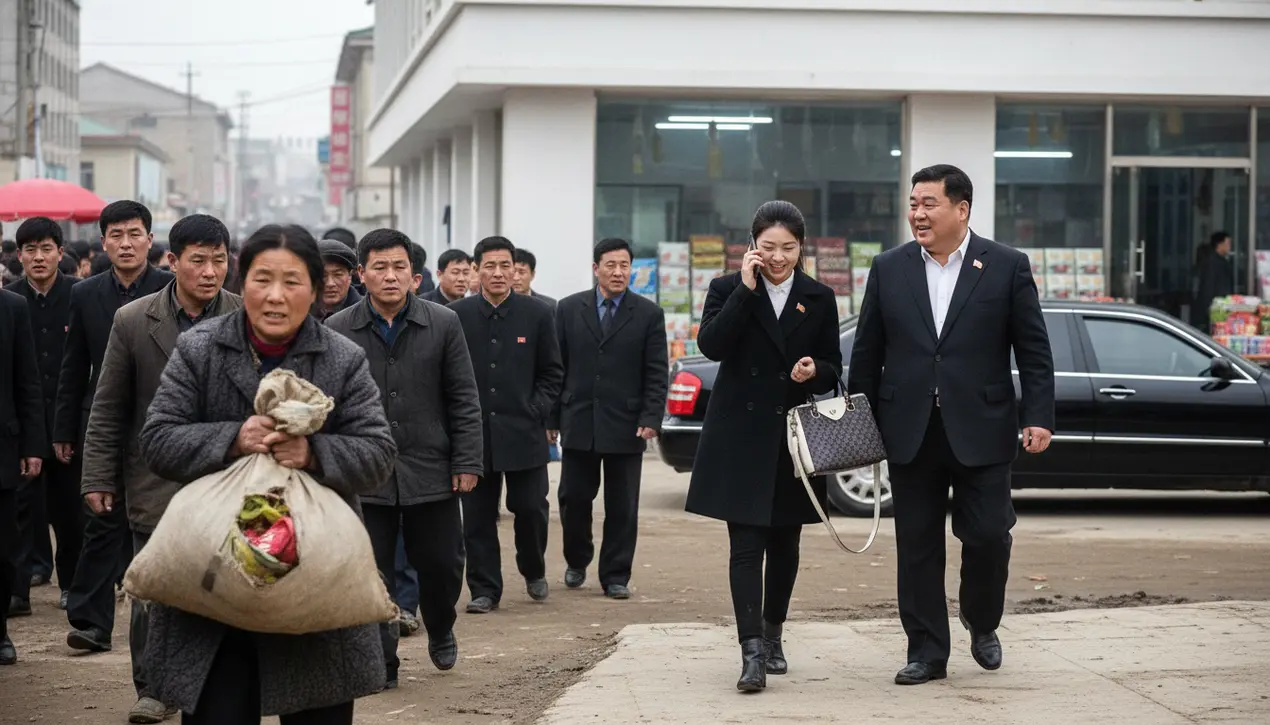
Politicssanctions & tradeEconomic Sanctions
North Korea's Wealth Gap Widens as Elite Flaunt Luxury Goods.
AN
Anna Wright
15 hours ago7 min read1 comments
In the stark landscape of North Korea, a nation long presented as a monolith of collective struggle, a profound and unsettling transformation is unfolding—one that mirrors the global scourge of inequality but is amplified by the regime's unique brand of ideological control. The wealth gap, a chasm once suppressed by state doctrine, is now widening with a visceral intensity, particularly in strategic border cities like Hoeryong and Hyesan.Here, the resumption of cross-border commerce with China has not been a tide that lifts all boats, but a selective current enriching a nascent elite while the majority are left to founder in a sea of deepening deprivation. This isn't merely an economic statistic; it is a human drama of the highest order, where the flaunting of imported luxury goods—designer handbags, high-end smartphones, and foreign liquors—by party cadres, military officials, and well-connected traders acts as a daily, galling reminder of a fractured social contract.For the ordinary citizen, the reality is one of extreme poverty, where securing basic foodstuffs remains a relentless daily battle, a struggle poignantly absent from the state’s propaganda. This emerging class divide challenges the very foundation of the Juche ideology, revealing a system where privilege is no longer just about political loyalty but is increasingly convertible into hard currency and consumerist display.The personal impact of this is devastating; it breeds a silent resentment that corrodes from within, creating a society where the collective spirit is replaced by the individual scramble for survival or supremacy. From a feminist and social policy perspective, this disparity inevitably falls hardest on women and children, who bear the brunt of economic shocks and for whom access to such exclusive networks is most limited.The situation demands a critical, empathetic analysis: we are witnessing not the creation of a market economy, but the calcification of a predatory kleptocracy, where the state's grip is used not for equitable distribution but for curating which few get to prosper. The consequences are far-reaching, potentially destabilizing the regime's control in the long term by exposing the hypocrisy at its core, while in the immediate term, it represents a profound humanitarian crisis playing out in the shadows, a stark narrative of haves and have-nots in the world's most closed society.
#North Korea
#wealth gap
#luxury goods
#economic sanctions
#border trade
#poverty
#featured
Stay Informed. Act Smarter.
Get weekly highlights, major headlines, and expert insights — then put your knowledge to work in our live prediction markets.
Comments
Loading comments...
© 2025 Outpoll Service LTD. All rights reserved.